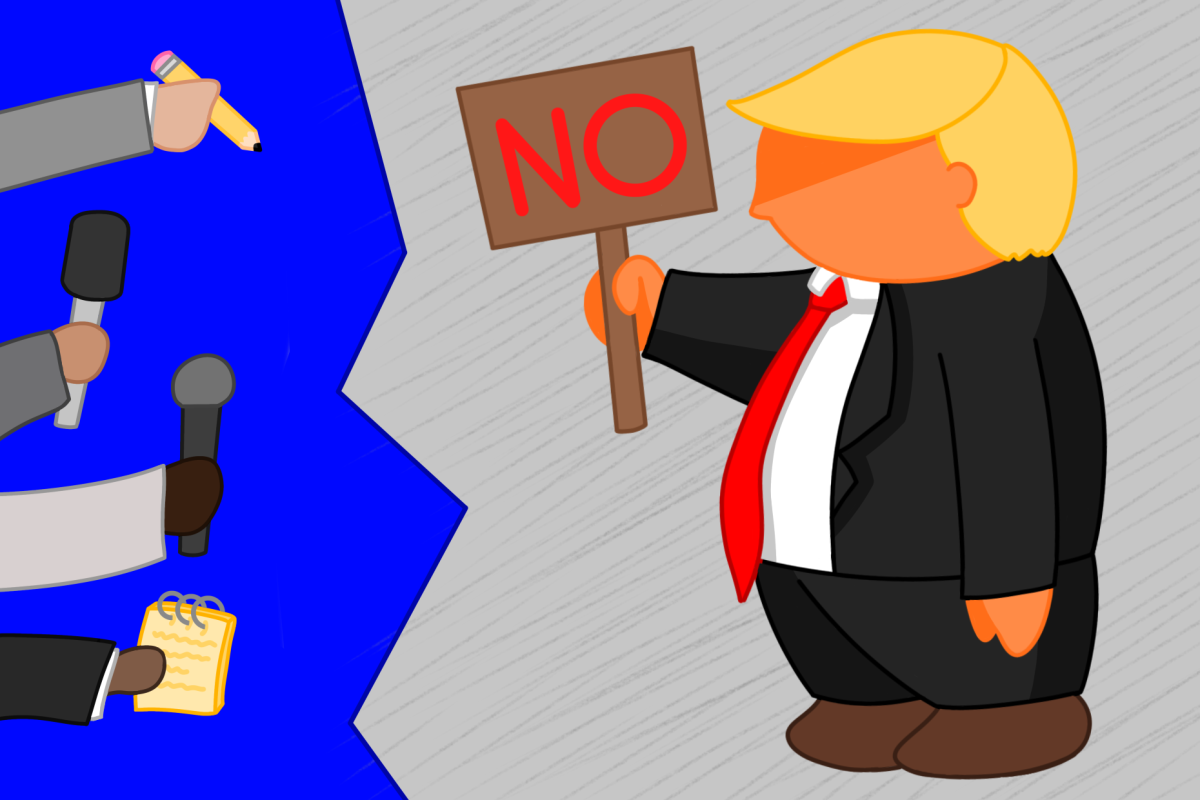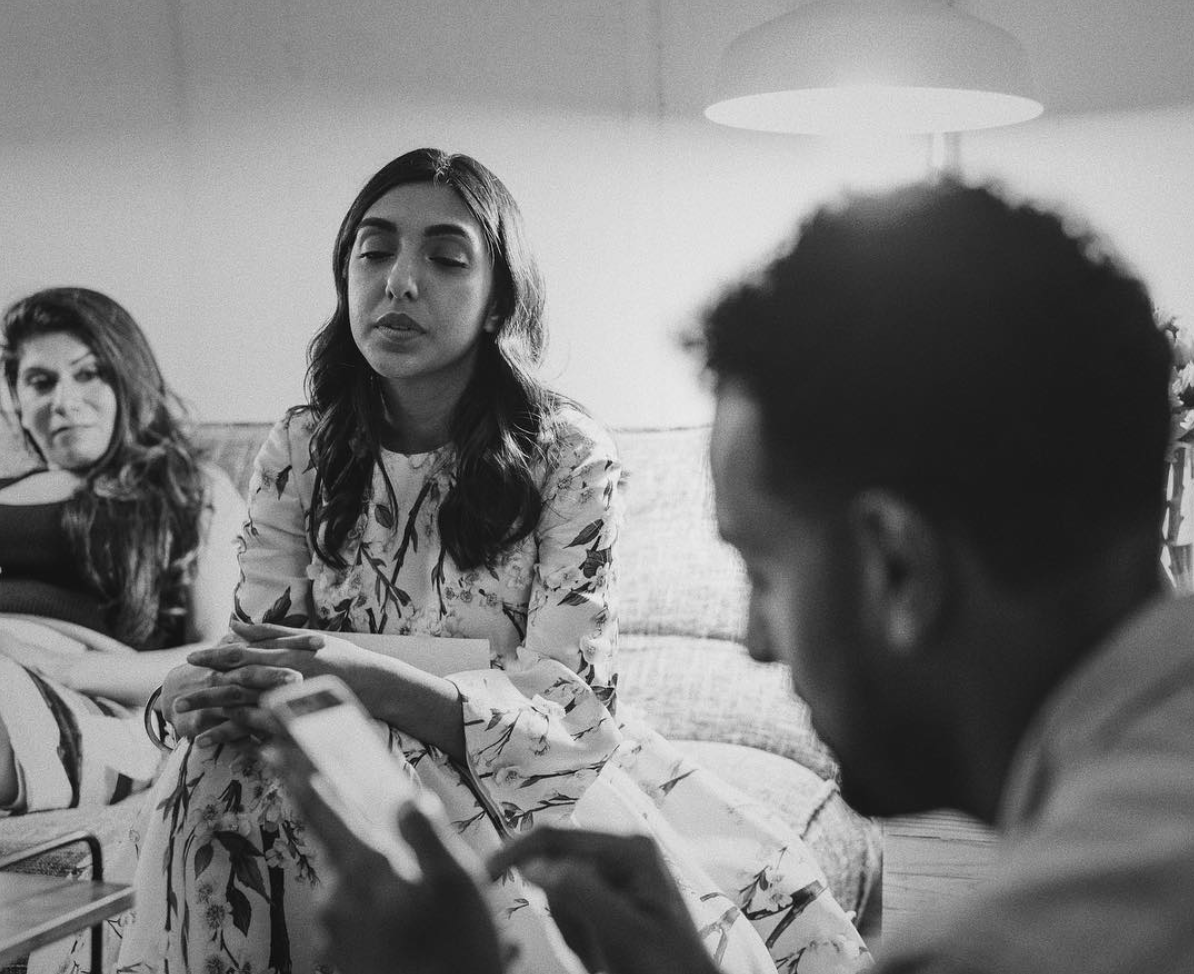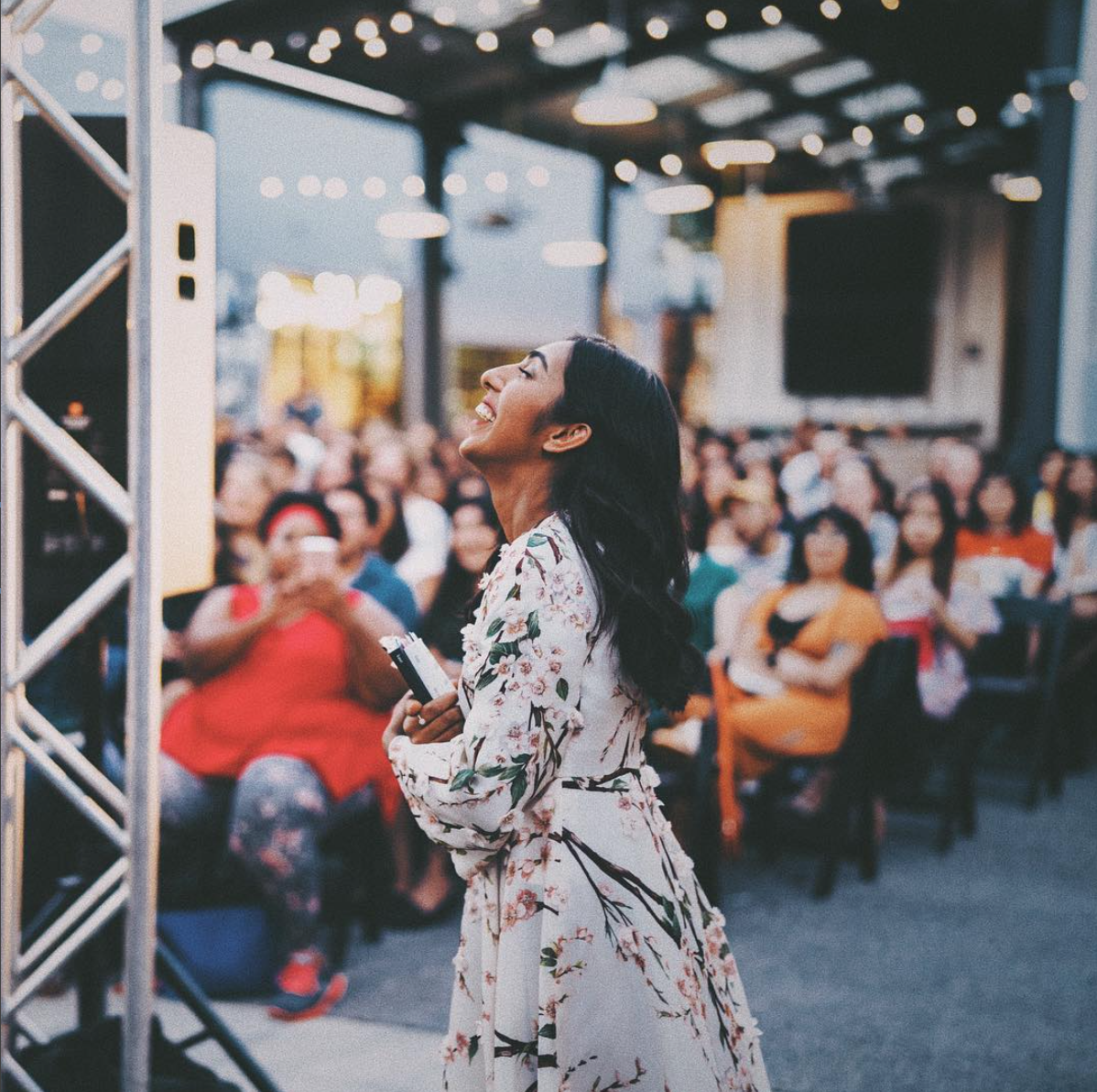Rupi Kaur’s poetry reading on Oct. 13 was captivating to the packed out Space24Twenty, just as her Instagram account is for her 1.7 million followers. The question is how long the fast-paced social media poetry will be able to keep that attention.
Story by Eva Forslund and Urub Khawaja
Photo Courtesy of IG: @ontheroadwithrupi
“She’s just really great, and I think she’s empowering to women,” says second-year bilingual education student, Ana Arreata. Arreata is first in line for the Punjabi-Canadian Instagram poet, Rupi Kaur’s reading at Space24Twenty on October 13. Arreata is not alone in her thinking that Kaur has been inspiring and influential. Kaur has been described as the voice of her generation, and more notably, as a pioneer for female empowerment.
Kaur started off as an Instagram poet. Her work is characterized by its short, relatable content, conveying everything from heartbreak to growing up as an immigrant, to domestic violence and self-love. Her poems were combined into the book “milk and honey,” that she initially self-published in 2014. It made it to the New York Times Bestseller list for 52 weeks in a row. On October 3, 2017, her second poetry collection, “the sun and her flowers,” was released. The book made it straight to the top of the New York Times Bestseller list and is taking Kaur on a tour from Ottawa to Austin. Meanwhile, her popularity online is still intact, amassing 1.7 million followers on Instagram as of October this year. Kaur’s social media use contributes to her success because her work is more effective and accessible to her Instagram audience of 1.7 million followers. She recently began outselling Homer, author of the “The Odyssey,” which was the highest grossing book of poetry of all time before “milk and honey.”
While watching Rupi Kaur on stage, it was easy to understand her appeal. She is not only a poet, but also a performer. She is charismatic, and stated that she did not want a stiff, pretentious poetry reading, but wanted the audience to “hoot and holler” whenever there was a chance. Her performance was made up of a few poems from every chapter of her recent collection and one freestyle audio-visual performance for each chapter.
Photo Courtesy of IG: @ontheroadwithrupi
To the delight of her fans, she also read a few poems from her first book, “milk and honey,” as well as revealed her personal feelings towards her success. Kaur talked about how right after the publication of her new book, she still did not feel fully content. “I learned that, and I’ve known this before, that happiness does not come from outside, and that really hit home when I was outside chasing it and looking for it behind every post, every event and every person,” Kaur says. “I would be alone in my hotel room each night and be like, ‘Shit, I don’t feel any more full.’ With the writing of this book I was like, ‘I have to overcome that.’ And I think that’s really important for you all to know because you’re so close to the work, and I’ve been so honest in writing the book and it would only make sense for me to be honest with that.”
Kaur is also known to publicly discuss issues that are generally deemed as uncomfortable. She was first discovered by many of her fans through an image she posted online of herself with a period blood stain. Kaur published the photo on Instagram in order to challenge the taboos against menstruation and the photo received much attention, especially after Instagram chose to censor the image. “I think she’s very comfortable with her own body,” Arreata says. “She’s not ashamed to talk about sexual harassment, or even just about her monthly cycle. I feel like a lot of women don’t do that because they’re scared of being turned away or not being on the New York Times Bestseller list–and she is [a New York Times Bestseller], because she talked about that.”
Kaur’s poetry is, however, not exempt from criticism. Kaur has been accused of plagiarising Nayyirah Waheed, African American poet and author of “salt.” Both poets have similar stylistic features, such as writing minimalistically–short lines without punctuation. There have also been commonalities in the themes discussed in their work, and both poets are mainly active on social media platforms.
Lujayn Hourani, creative writing foreign exchange student, was also attending the reading on Friday. When asked about her opinion on these allegations, she said that she thought it was strange that these allegations were made against Kaur. “I think part of it was because she had gained the most exposure, more than anyone else,” Hourani says. “But at the same time it’s like there are so many white Instagram poets that are doing the exact same thing and no one is coming for them.”
Perhaps Kaur’s work resembles Waheed’s because the minimalistic style itself has developed ever since social media has been used as a platform for poetry. Writing these short verses is not only a result of the limited character counts that social media permits, but it also ensures that poets can retain their audience’s attention. “You have to have something that is easy and really quick, or people are going to lose interest,” Hourani says. “Like how many times do you read things on Instagram with a long ass caption? You’re like, ‘I’m not gonna read that, I’m just gonna scroll past it.’”
There is a fine line between plagiarism and inspiration, and the fast pace of social media makes it easier to confuse the two. Poetry reading attendee Christie Tcharkhoutian, who is a professional Matchmaker for Match.com and doctoral student at the University of Southern California, thinks the allegations lack legitimacy, and that the process could be compared to creating music. “I used to work in the music industry, and it’s like you use the same ten notes to write all music and we can still create really different music,” Tcharkhoutian says. “And we’re all kind of close to the human experience. I think it is important to cite, but I think if you use other artists as inspiration for your work, then that’s okay. Because we are all just using the same nine human emotions in poems.”
Photo Courtesy of IG: @rupikaur_
Those nine emotions were very much present in both Kaur’s collections and her performance on Friday. One emotion Kaur highlighted during the reading was jealousy, which she introduced in her poem entitled “jealousy.” “I’m an extremely jealous person,” Kaur says. “It’s so conflicting because you want to support every single person on the planet. And you’re all about the sisterhood but then he’s walking around with her and you’re like, ‘I hate her.’ Instead of taking it out on her, I take it out on the rain in this poem.” The poem stated the following: “yesterday / the rain tried to imitate my hands / by running down your body / i ripped the sky apart for allowing it.”
While the poems are relatable, they also tap into the criticism that has been raised against Kaur. Her poems are not written to enthrall an audience at a poetry reading through their complexity and depth, but rather to catch one’s attention while scrolling through a social media platform. Perhaps there is a trade-off between relatability and complexity. Social media is very effective in spreading poetry to a new generation of poetry readers. But the fast-paced nature of social media also means that there is not enough space nor attention from readers to develop and deepen one’s work. This might be the reason Kaur has met allegations of plagiarism: social media as a forum for poetry only allows for condensed content. The simplicity in itself might not be a bad thing. On the contrary, it is what many fans like the most about Rupi Kaur. One of Kaur’s fans, Sarah Sam, second-year petroleum engineering student, says “There’s a lot [in her poetry] about self-love and growth, and these are all very complex concepts, but she makes it very simple and easily understood, and I really like that. It’s easy to apply to your own life.”















































Sebastian • Nov 5, 2017 at 6:56 am
Nice!